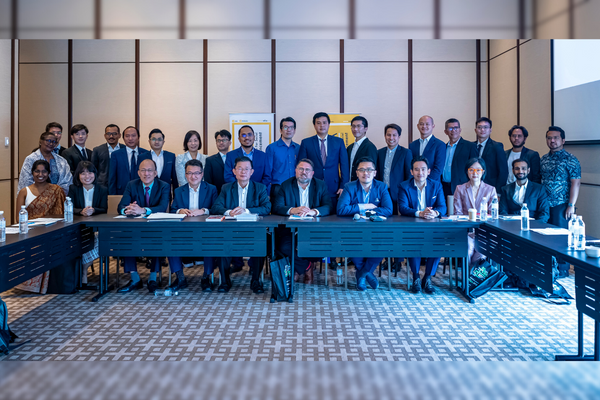Media Statement by Research for Social Advancement (REFSA) on 3 August 2022
On 28 and 29 July, local think tank Research for Social Advancement (REFSA) in partnering with Friedrich Ebert Stiftung (FES) successfully hosted a regional roundtable titled “The New Geopolitics of Asia and the Global Order of Tomorrow: Implications for Southeast Asia”. The dialogue explored the geopolitical and economic role ASEAN countries should play in navigating global issues, such as the US-China tensions, the Russia-Ukraine war and the South China Sea dispute.
The roundtable marked REFSA’s first major physical event in over 2 and half years. But it was a worthwhile wait as the programme came at an opportune time amid the global transition to the post-pandemic state of affairs marked by heightened anxieties.
Officiated by Penang Chief Minister YAB Chow Kon Yeow, the roundtable brought together a diverse group of policymakers, academics and thought leaders from across Asia-Pacific, including Marc Saxer, Managing Director for FES Regional Cooperation in Asia; Pita Limjaroenrat, Leader of Move Forward Party, Thailand; former presidential advisor Ronaldo Llamas of the Philippines; Dr Le Trung Kien of Vietnam; Prof Makmur Keliat of Indonesia; Dr Jeonghyeon Kim of South Korea and Assoc. Prof Zhong Da Rong, Associate Professor of HuaQiao University among others. With YB Howard Lee Chuan How, State Assemblyman of Pasir Pinji, as the Conference Chair, the dialogue was also attended by local participants including YB Liew Chin Tong, former Deputy Minister of Defence, YB Ong Kian Ming, former Deputy Minister of International Trade and Industry, Dr. Ngeow Chow Bing, Director of Institute of China Studies at University Malaya, Prof Kuik Cheng Chwee, Professor in International Relations at University Kebangsaan Malaysia and many other think tank leaders and academicians.
Over the two days, participants debated suitable strategies for ASEAN member states to manage and exploit the rivalry between the great powers. Discussions highlighted several recurring themes, most crucially the changing world order: the world is becoming increasingly multipolar, leaving behind the post-Cold War era of American dominance in world affairs.
Amid the evolving landscape, ASEAN is emerging as a region ripe with both opportunity and tension. Though the region is home to competing global interests, the participants stressed that Southeast Asian states could take the middle ground and emerge stronger rather than passively serving as pawns in a new geopolitical battleground.
To carve out this middle ground, discussants came up with three key positions as follows:
- Having an independent foreign policy. ASEAN countries should gear their foreign policy towards gaining resilience in economic development, defence and other areas. There is a need to avoid falling into the binary trap of picking sides between the US and China. Further, ASEAN should address internal issues, such as the instability in Myanmar, and build trust among member states to emerge as a united bloc.
- Practising ‘a la carte’ diplomacy. In line with moving away from one-size-fits-all binary choices, ASEAN states should continue engaging in multi-layered and multi-aligned diplomacy that is inclusive, impartial and integrative. Instead of overcommitting to any given side, they should forge ties in a way that furthers ASEAN interests. To achieve this, countries should have multiple strategies in their toolbox as a way of ‘hedging their bets’, ranging from bilateralism, regionalism and minilateralism.
- Leveraging ASEAN’s economic position as a crossroad between China and the US. The US-China rivalry, along with China’s incessant lockdowns, has made the core ASEAN market more desirable destination for global FDI and trade due to the region’s stability, global market access and favourable investment climate. There is potential to strengthen and regionalise value chains in ASEAN by playing to the strengths of each country such that the member states complement one another rather than simply compete for investment. Multilateral free trade agreements involving ASEAN like the Indo-Pacific Economic Framework (IPEF) with the US and the Regional Comprehensive Economic Partnership (RCEP) with China are early examples of such leveraging in action.
Ultimately, the roundtable offered participants considerable food for thought, particularly in terms of adapting these strategies to the needs of their own respective countries. Where Malaysia is concerned, the discussions reinforced the need for the country to have robust discussions on diplomacy, geopolitics and trade as part of efforts to establish an independent yet coherent, cohesive and holistic foreign policy framework.

